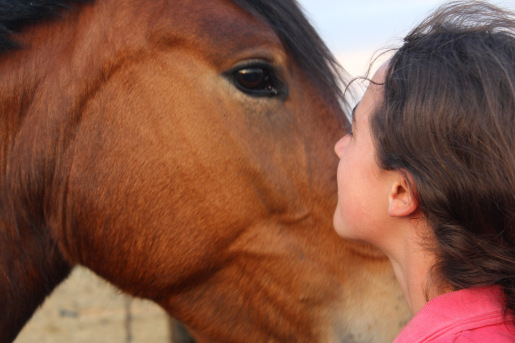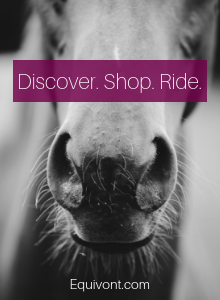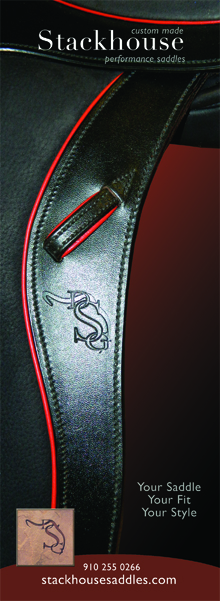Search the Site
Firn's Blog Post # 10
Two Levels of Trust
What defines the relationship between horse and rider if not trust? What else is more striven for and more desired in horsemanship than the trust of our equine partners? What is the key to success, if not trust?
Trust is central to a good relationship between horse and human. We all know that horses are prey animals and that we are predators, that there is a primal part of every horse that labels us dangerous enemies. And we all know how easy it is for these huge, powerful animals to kill us. It's a trust that runs two ways, the foundation upon which we build our partnership with loving hands. I have written before about rider confidence - the rider's trust in the horse - but today I want to touch on the subject of a horse's trust for his rider.
We all know that horses must trust us to allow us near them or on their backs. And most of the horses we're familiar with trust us not to hurt them, or we'd never be able to get near them. But this is only the first level of trust, the surface of a horse-human relationship, and one that most of us take entirely for granted. And not just in horse-human relationships, but in most of our relationships with our own kin. It's only in rare situations that most of us fear each other.
There is, however, a second level of trust that is just as essential as the first, a trust that runs so deep many of us hardly realise its presence or recognise its absence for what it is. And it sounds simple: it's the horse's trust that the rider will never allow anything to harm him. Ever.
This trust has to be won before the horse and rider can ever truly work as a team. It's a good thing if the horse doesn't fear the rider, but there is so much else in our world that horses fear that it's just the first step. The horse will never completely relax and focus on the rider if he fears what is going on around him or believes that he has to look out for himself - all but the most seasoned and confident horses need the rider to lead them in new situations. And this kind of trust begins with submission.
Oh, submission - that debated and controversial thing. To many, causing a horse to submit appears to be little short of torture. But there is a difference between submission and slavery, and the concept is a safe, familiar, and ordinary one for most horses and humans.
Allow me to illustrate. Horses, as we know, function in a hierarchy. Their herds have ranks, each horse knowing its place, and the leader and most dominant horse in the herd is your lead mare. Lead mares get their way; nobody pushes them around, and what they say, goes. They keep their herdmates in their places with flattened ears and well-aimed kicks, demonstrating again and again that they are stronger than the others - strong enough to be able to keep them safe. Faced by such an authoritative leader, the other horses feel more secure because they know somebody consistent and powerful is on their side. And when trouble happens, after a moment's panic, the other horses in the herd will always look to the lead mare. She is usually an older, strong-willed and levelheaded mare, so she is savvy enough to be able to make the right choices in an emergency. And once she takes the lead, the other horses follow her orders unquestioningly, following her wherever she sees fit to lead, because they know she will run in the right direction and lead them to safety.
Fair enough, so horses are familiar with and feel secure in submission. What about people? Believe it or not, our society also follows a hierarchy. Even if equality becomes the norm all over the world, our society will always work this way or fall apart. Don't believe me? Well, let's look at a fairly common human relationship: that between a teacher and a student. The teacher is usually older and (hopefully) more skilled, experienced, and knowledgeable than the student. The student follows the teacher's instructions, gives the teacher his/her personal space, and treats them with respect (assuming they are not the sort of student that you would like to see thrown off face-first into the nearest pile of horse manure). My relationship with my trainer is exactly such an example; he tells me what to do and I might make suggestions or ask questions, but when the chips are down, his word is law. And just like a lead mare (except not a mare), my trainer knows how to keep us safe in an emergency. When a horse is acting dangerously, I follow his orders because he has the ability to minimise the risk of anybody getting hurt.
So in our relationships with horses, it's essential to consider ourselves teacher or lead mare - not slave driver or sibling. For isn't that what we want? A happy, relaxed horse that feels secure and is obedient to us in every situation? But this kind of trust is very hard to win. The only way to win it is to prove ourselves worthy of leading the horse, again and again, to demand and earn respect with every action we take. We have to show that horse that we are strong enough, wise enough, and cool-headed enough to keep them safe, no matter what. We can do this in two ways. Firstly, we have to show the horse that it can't dominate us or wilfully go against our orders. The horse figures that if it can overcome us, then so can anything that wants to overcome it - obviously we can't keep it safe. So we have to be consistent, we have to insist on getting what we want (assuming the horse is physically and mentally able to give it to us), and we have to keep that horse from pushing us around.
Secondly, and even harder, we have to show the horse that in even the most dire of circumstances we will make good decisions and never panic. Fear is okay. Horses know about fear. But panicking is not good. We have to think on our feet when disaster strikes - even if that disaster is just a plastic bag or a dressage marker - and carry out the right actions with calm conviction, showing the horse that we'll get through anything together. Once you can do those two things, you'll earn both trust and respect and your horse will obey you in any situation without being turned into a robot. He'll still be able to think for himself, but he'll follow your orders first. And this can improve more than just performance; it can improve the safety of both horse and rider. For example, a horse that trusts the rider completely won't bolt when he gets a fright. He'll jump and have a moment's terror, then stop and look to you for what to do.
And ultimately, trust and respect lead to the greatest achievement of all: friendship between horse and human. That same lead mare that puts other horses in their places will stand for hours beside them, grooming them with her teeth, and they'll return the favour. That same trainer whose word is law has become one of my dearest friends. Because once the horse knows that you'll carry him through anything, and once you know that you can trust him no matter what, friendship cannot help but blossom. You cannot help but make something amazing together.






